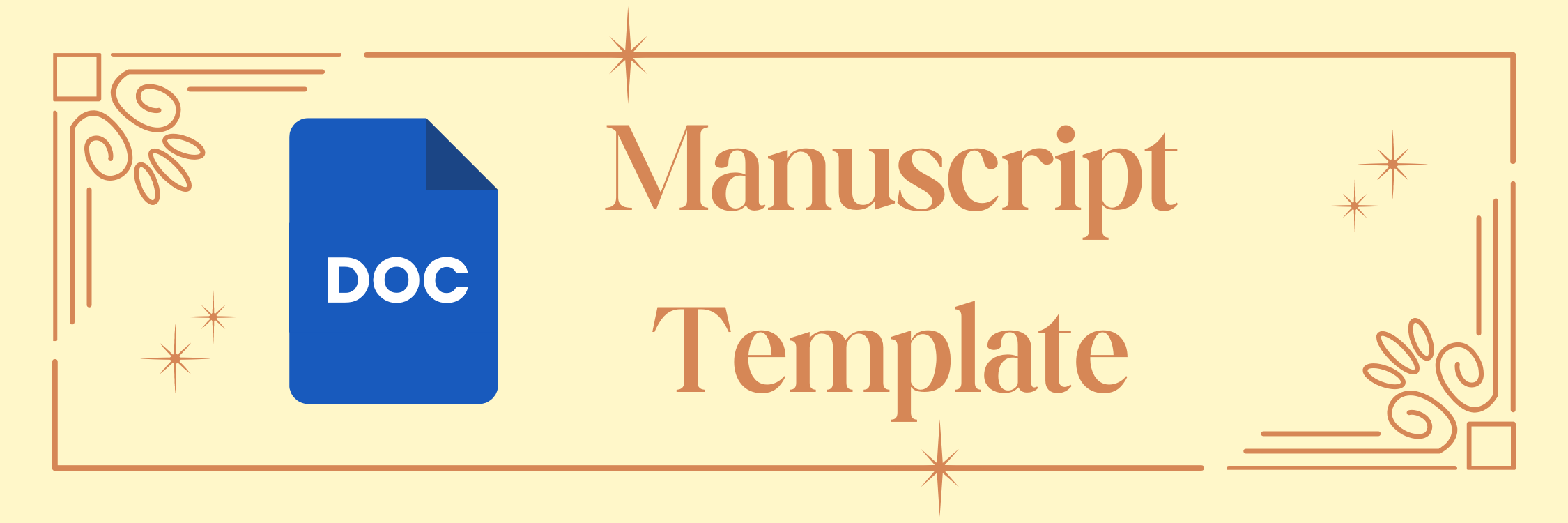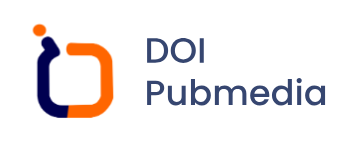Potential for eco-enzyme development as entrepreneurship in river ecotourism and mangrove conservation
DOI:
https://doi.org/10.69812/itj.v1i2.39Keywords:
Ecotourism, eco-enzyme, and entrepreunershipAbstract
The development of tourism in Indonesia is currently experiencing rapid progress with the advancement of digital technology. The tourism sector is one of the factors that contributes greatly to the Indonesian economy. The biodiversity in Indonesia makes the tourism potential in Indonesia a source of pride, which is expected to become a more environmentally friendly tourism development. This study aims to determine the potential for eco-enzyme entrepreneurship in the Tegalsari Maritime Tourism Village by implementing ecotourism development and preservation strategies in Indonesia. Therefore, by doing entrepreneurship, it can improve the economy in the Tegalsari Maritime Tourism Village by making environmentally friendly superior products, one of which is eco-enzymes. This study is a qualitative research based on descriptive by analyzing the potential of entrepreneurship in the Tegalsari Maritim Tourism Village. This qualitative method based on descriptive is a type of research that describes in detail related to entrepreneurship studies in line with the aim of implementing ecotourism strategies. Based on the analysis conducted in this study, it can be concluded that the mangrove forest area in the Tegalsari Maritim Tourism Village has great potential to be used as a leading tourist destination in Malang Regency.
Downloads
References
Adom, D. (2019). The place and voice of local people, culture, and traditions: A catalyst for ecotourism development in rural communities in Ghana. Scientific African, 6, e00184.
Aliansyah, H., & Hermawan, W. (2019). Peran sektor pariwisata pada pertumbuhan ekonomi Kabupaten/Kota di Jawa Barat. Bina Ekonomi, 23(1), 39-55.
Aneseyee, A. B., Abebaw, A., & Haile, B. T. (2022). Identification of suitable sites for the community-based ecotourism developments in Abijiata-Shalla Lakes National Park, Ethiopia. Remote Sensing Applications: Society and Environment, 26, 100750.
Aquino, R. S. (2022). Community change through tourism social entrepreneurship. Annals of Tourism Research, 95, 103442.
Arsalan, A., Gravitiani, E., & Irianto, H. (2018, June). Valuasi Ekonomi Ekowisata Kalibiru dengan Individual Travel Cost Method. In Prosiding Seminar Nasional Pendidikan Biologi (pp. 110-118).
Astra, I. K. B., Wijaya, M. A., Artanayasa, I. W., & Kardiawan, I. K. H. (2021). Pengolahan Sampah Organik Berbasis Eco Enzyme Sebagai Upaya Pembentukan Karakter Peduli Lingkungan Pemuda di Kabupaten Buleleng. Proceeding Senadimas Undiksha, 6, 2065-2073.
Benjamin, B., & Bela, P. A. (2020). Penataan kawasan wisata Pulau Pari dengan konsep ecotourism. Jurnal Sains, Teknologi, Urban, Perancangan, Arsitektur (Stupa), 2(1), 1137-1152.
Berkes, F. (2021). Advanced introduction to community-based conservation. Edward Elgar Publishing.
Birendra, K. C., Dhungana, A., & Dangi, T. B. (2021). Tourism and the sustainable development goals: Stakeholders' perspectives from Nepal. Tourism Management Perspectives, 38, 100822.
Budiyanto, C. W., Yasmin, A., Fitdaushi, A. N., Rizqia, A. Q. S. Z., Safitri, A. R., Anggraeni, D. N., ... & Pratama, Y. A. (2022). Mengubah Sampah Organik Menjadi Eco Enzym Multifungsi: Inovasi di Kawasan Urban. DEDIKASI: Community Service Reports, 4(1).
Carbone, F., Oosterbeek, L., Costa, C., & Ferreira, A. M. (2020). Extending and adapting the concept of quality management for museums and cultural heritage attractions: A comparative study of southern European cultural heritage managers' perceptions. Tourism Management Perspectives, 35, 100698.
Dadi, D. (2022). Ekonomi dan Ekologi: Dampak terhadap Pembangunan Ekowisata. Journal of Management and Bussines (JOMB), 4(1), 137-153.
Damanik, J., & Weber, H. F. (2006). Perencanaan ekowisata: Dari teori ke aplikasi.
Dian, R., Purba, B. M., Rumapea, N. H., & Pinem, D. E. (2024). Strategi Pengembangan Ekowisata Mangrove Berkelanjutan Di Belawan Sicanang Kecamatan Medan Belawan Kota Medan. Jurnal Darma Agung, 32(3), 246-258.
Habibi, F., Rahmati, M., & Karimi, A. (2018). Contribution of tourism to economic growth in Iran's Provinces: GDM approach. Future Business Journal, 4(2), 261-271.
Harjanto, S., Setiyowati, S., & Vulandari, R. T. (2021). Application of analytic hierarchy process and weighted product methods in determining the best employees. Indonesian Journal of Applied Statistics, 4(2), 103-113.
Hosseini, S. M., Paydar, M. M., & Triki, C. (2021). Implementing sustainable ecotourism in Lafour region, Iran: Applying a clustering method based on SWOT analysis. Journal of Cleaner Production, 329, 129716.
Kia, Z. (2021). Ecotourism in Indonesia: Local community involvement and the affecting factors. Journal of Governance and Public Policy, 8(2), 93-105.
Kunjuraman, V., Hussin, R., & Aziz, R. C. (2022). Community-based ecotourism as a social transformation tool for rural community: A victory or a quagmire?. Journal of Outdoor Recreation and Tourism, 39, 100524.
Luthfiyyah, A., & Farabi, A. (2010). Konsep eco-community melalui pengembangan eco-enzyme sebagai usaha pengolahan sampah organik secara tuntas pada level rumah tangga.
Masud, M. M., Aldakhil, A. M., Nassani, A. A., & Azam, M. N. (2017). Community-based ecotourism management for sustainable development of marine protected areas in Malaysia. Ocean & coastal management, 136, 104-112.
Maulidiya, L., & Hayati, M. (2020). Potensi dan strategi pengembangan pariwisata di pulau mandangin kabupaten sampang. Agriscience, 1(2), 507-529.
Megah, S. I. (2018). Pemanfaatan limbah rumah tangga digunakan untuk obat dan kebersihan.
Mejjad, N., Rossi, A., & Pavel, A. B. (2022). The coastal tourism industry in the Mediterranean: A critical review of the socio-economic and environmental pressures & impacts. Tourism Management Perspectives, 44, 101007.
Moleong, L. J. (2007). Metodologi penelitian kualitatif edisi revisi.
Mulyani, S., Ahsani, R. D. P., & Wijaya, D. N. (2021). Collaborative Governance on Ecotourism: Towards Sustainable Tourism Development. Jurnal Borneo Administrator, 17(3), 319-334.
Nurhamidah, N., Amida, N., Rohiat, S., & Elvinawati, E. (2021). Pengolahan Sampah Organik Menjadi Eco-Enzyme pada Level Rumah Tangga menuju Konsep Eco-Community. Andromeda: Jurnal Pengabdian Masyarakat Rafflesia, 1(2), 43-46.
Nurzaman, M. (2018). Analisis Pendapatan Masyarakat dan Kontribusinya terhadap Pendapatan Anggaran Daerah Melalui Rekreasi Keluarga pada Objek Wisata Situ Lengkong Panjalu Kabupaten.
Pakki, T., Adawiyah, R., Yuswana, A., Namriah, N., Dirgantoro, M. A., & Slamet, A. (2021). Pemanfaatan eco-enzyme berbahan dasar sisa bahan organik rumah tangga dalam budidaya tanaman sayuran di pekarangan. Prosiding Pepadu, 3, 126-134.
Pandani, P. (2020). Pengaruh Obyek Wisata Ranggon Hiils terhadap Tingkat Pendapatan Masyarakat. Akrab Juara: Jurnal Ilmu-ilmu Sosial, 5(4), 119-135.
Pratiwi, S. R., Rahmawati, M., & Kartini, K. (2021). Ecotourism Attractiveness And The Need To Review The Competitiveness Potential Of Ecotourism Development. Journal of Applied Economics in Developing Countries, 6(2), 6-16.
Rangkuti, F. (2015). Personal SWOT analysis. Gramedia Pustaka Utama.
Risky, P. (2022). Strategi Pengembangan Ekowisata Mangrove Berbasis Masyarakat dalam Menarik Kunjungan Wisatawan di Kampung Baru Kabupaten Penajam Paser Utara. Jurnal Inovasi Penelitian, 3(2), 4941-4950.
Septiani, U., Najmi, N., & Oktavia, R. (2021, October). Eco Enzyme: Pengolahan sampah rumah tangga menjadi produk serbaguna di Yayasan Khazanah Kebajikan. In Prosiding Seminar Nasional Pengabdian Masyarakat LPPM UMJ (Vol. 1, No. 1).
Sinaga, R. M., Putri, A. M., & Fionasari, D. (2024). Pengaruh Skeptisme Profesional, Independensi Dan Pengalaman Auditor Terhadap Kemampuan Auditor Dalam Mendeteksi Kecurangan: Studi Kasus Pada Kantor Akuntan Publik di Kota Pekanbaru. AKUNTANSI 45, 5(1), 789-806.
Sitorus, R. O., Pakpahan, H. T., & Aritonang, R. (2022). Strategi Pengembangan Wisata Sawah (Studi Kasus: Jl. Johar Raya, Desa Pematang Johar Kecamatan Labuhan Deli Kabupaten Deli Serdang). Jurnal METHODAGRO, 8(1), 38-61.
Stronza, A. L., Hunt, C. A., & Fitzgerald, L. A. (2019). Ecotourism for conservation?. Annual Review of Environment and Resources, 44(1), 229-253.
Suprayogi, D., Asra, R., & Mahdalia, R. (2022). Analisis produk eco enzyme dari kulit buah Nanas (Ananas comosus L.) dan Jeruk Berastagi (Citrus X sinensis L.). Jurnal Redoks, 7(1), 19-27.
Wijaya, D. P., Fitriyani, C. E., Kurnia, N. L. E. I., Aliyatulmuna, A., Zakia, N., Sari, M. E. F. S., Danar, D., Putri, N. A. S., Darmawan, F. I., & Kholilah, K. (2023). Pelatihan Pembuatan Elektrolisis Dengan Minyak Jelantah Pada Pembelajaran SMPN 4 Pasuruan Dalam Meningkatkan Kualitas Riset. Prapanca : Jurnal Abdimas, 3(2), 100-114. https://doi.org/10.37826/prapanca.v3i2.518
Wijaya, D. P., Qur'ani, N., Zahirah, M. V., Aliyatulmuna, A., Sari, M. E. F., Danar, D., & Zakia, N. (2023). Pelatihan Pembuatan Sel Volta dengan Minyak Jelantah dan Penambahan Katalis Silika Pada Pembelajaran Ilmu Pengetahuan Alam (IPA) SMP Negeri 4 Pasuruan dalam Meningkatkan Kualitas Riset. I-Com: Indonesian Community Journal, 3(2), 738-753.
Wijaya, D. P., Zakia, N., Danar, D., Aliyatulmuna, A., Sari, M. E. F., Dzakirah, F. A., ... & Cahyono, R. B. (2024). Pelatihan Pembuatan Biopestisida dari Kulit Rambutan pada Perkebunan Kopi Desa Rembun. LIPAMAS: Jurnal Pengabdian Masyarakat, 1(1), 13-21.
Wulandari, A. R., Ihsannudin, I., & Hayati, M. (2022). Pengaruh Ekowisata Terhadap Peningkatan Pendapatan Masyarakat Lokal Pantai Taman Kili Kili Kabupaten Trenggalek. Jurnal Dinamika Sosial Ekonomi, 23(1), 1-15.
Wulung, S. R. P., Puspasari, A. H., Zahira, A., Mutiara, I. N., Mutiah, K., Triastika, M., & Yulian, V. R. D. (2020). Destinasi super prioritas Mandalika dan covid-19. Khasanah Ilmu-Jurnal Pariwisata dan Budaya, 11 (2), 83-91.
Wungo, G. L., Mussadun, M., & Ma'rif, S. (2020). Edukasi penerapan konsep ecotourism di Kepulauan Karimunjawa. Jurnal Pasopati, 2(3).
Downloads
Published
How to Cite
Issue
Section
License
Copyright (c) 2024 Dika Putra Wijaya, Nur Laila

This work is licensed under a Creative Commons Attribution-ShareAlike 4.0 International License.
You are free to:
- Share — copy and redistribute the material in any medium or format for any purpose, even commercially.
- Adapt — remix, transform, and build upon the material for any purpose, even commercially.
- The licensor cannot revoke these freedoms as long as you follow the license terms.
Under the following terms:
- Attribution — You must give appropriate credit, provide a link to the license, and indicate if changes were made . You may do so in any reasonable manner, but not in any way that suggests the licensor endorses you or your use.
- ShareAlike — If you remix, transform, or build upon the material, you must distribute your contributions under the same license as the original.
- No additional restrictions — You may not apply legal terms or technological measures that legally restrict others from doing anything the license permits.















